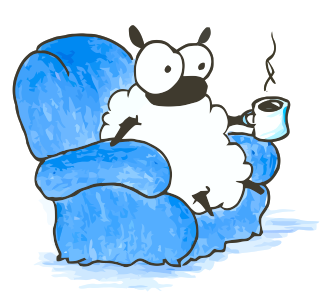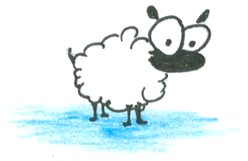Looking back on my childhood inevitably involves seeing it through a kaleidoscope: there are images and memories and important people, but the facts are jumbled together in tiny, sharp fragments and categorized by smell and monomers I can’t quite remember; the net result is always interesting but never quite the same.
There are days where I feel sick and impoverished and neglected, and there are days I feel overwhelmed by the blessings I received and ashamed of my ingratitude - and most other days I arrive in the middle, seeing bits and pieces that don’t quite connect, sometimes angry and sometimes sad and sometimes only confused.
My mother was a single mother, the only grandmother I knew was a single mother, and the only great grandmother I knew was a single mother. Men occupied the periphery of my life - never constant or essential, flighty and forever dying tragically. It’s a philosophy I’ve carried with me - I know I want children, but a husband? We'll see.
My mother was not a fan of single parenting - she sorely missed her own father (he died when she was little, and her younger sisters hardly remember him). As a parent, she struggled to raise her own children and complete two university degrees - for her, the strains of not having a live-in husband meant that she was forever out of time, money, patience, and affection. It was lonely and difficult. More parents equal more everything, she quips, and I agree. But why not three parents, then, or four? Why not a whole extended family or two, and a community, and a (*sigh*, clichéd) village?
From that perspective, I had lots of parents. There was my youngest aunt, who collected me from nursery school and babysat me often. When my brother and I grew into surly teenagers, her house became a welcome refuge, for days or months at a time. There was my grandmother, who lived on a farm with her second husband. She showed us baby pigs and barn kittens, told us stories, and taught me to set her table according to strict archaic rules I vaguely remember, while her husband (my Poppa) stood gruffly in the background. He terrified me until I was fourteen and miserable, at which point our relationship grew into wry affection - I still miss him.
Of course, my own home had my mother (ruling matriarch), and during the summer months and holidays her influence was supplemented by two other parents - my other aunt, and uncle. Their sons were just younger than my brother and me (and later, their only daughter just younger than my sister), and the three parent, six child unit composes many of my chaotic childhood memories. There were Christmas mornings, and swimming lessons, story times, nature walks, snowball fights, tobogganing…
My uncle built my brother and I a raised, wooden fort in our backyard. He was the adult taking us on camping trips, and nature hikes, and teaching us about different plants and animals. He was the adult who was telling us stories, and probably the only adult who liked children at all - god knows why my aunt had kids. Her anger was volatile and her parenting method best described as authoritarian/abusive; my mother and she retreated into the background of communal parenting duties, making decisions, doling out hotdogs and mittens, clucking and yelling and bandaging knees. My uncle was at the forefront, entertaining us, talking to us, teaching us, thinking up new and exciting adventures. He took me to fire my first gun (a rifle, age eight); perhaps more relevantly, he taught me to tie my shoe laces.
The mantra was something about bunny rabbits and a hole - I don’t quite remember it, though I probably should.
After age eleven or twelve, there are fewer memories of him. The women rushed in and took over - there were fights with my mother and fights with my sister and fights with my grandmother (all to compliment the fun between preteen girls at a cliquey school). When my cousins and brother turned fourteen, my uncle presented them each with a pocket knife; there was a speech to go with it, involving survival and manhood or some such phallic imagery. For me, the pocket knife came a year late, unwrapped without a note, and delivered by my mother - she had argued for it on behalf of fairness, and possibly bought it herself.
The explanation arrived later - much, much later. When I was twenty-two, I came to learn what my female cousin had known for years - that my uncle was, is, has been a child molester and pedophile. I thought of the long hug I’d given him when I was ten (my aunt had called me clingy and quickly intervened), and I wanted to vomit. I thought of my little cousin and wanted to cry. I thought of my uncle and wanted to spit, to rip at flesh until it was all sticky pain and blood mixed with feces.
So I vomited and I cried. I try not to think of him. There’s a street downtown that has his last name, and that bus stop comes with a wave of nausea and rage. I live in a scenic city and, when I wander in its natural beauty, I think fondly of the nature walks, of the camping, of the tree fort - I wonder how to integrate those bits and pieces with the man that I cannot and will not look at again, except from a witness stand.
A man who spends five years of his free time molesting little girls - that man disgusts me completely. But I cannot sift out all the bits of memory he’s stained. And all the happy memories remain with him inside them, and I cannot put the pieces together - they do not fit. The bits of me I’ve cherished are aching with betrayal, and so many little things, years later, continue to hurt. I do not know how to talk to my cousins. I do not know how to tie my shoes.
Tuesday, March 17, 2009
Subscribe to:
Post Comments (Atom)





No comments:
Post a Comment